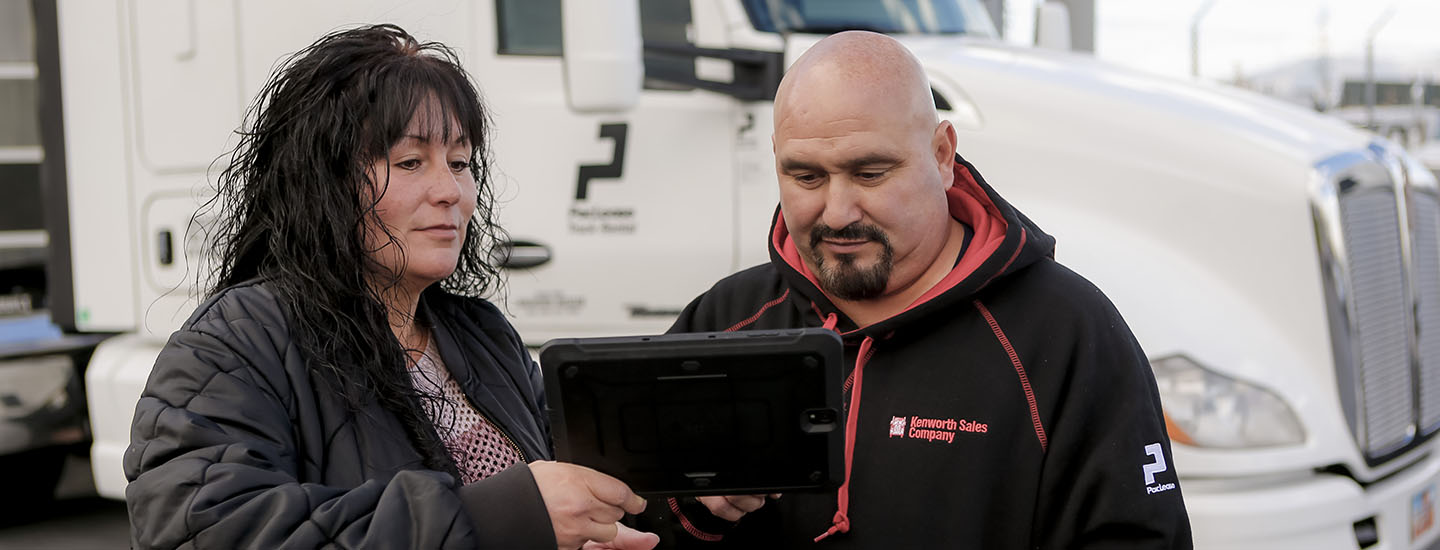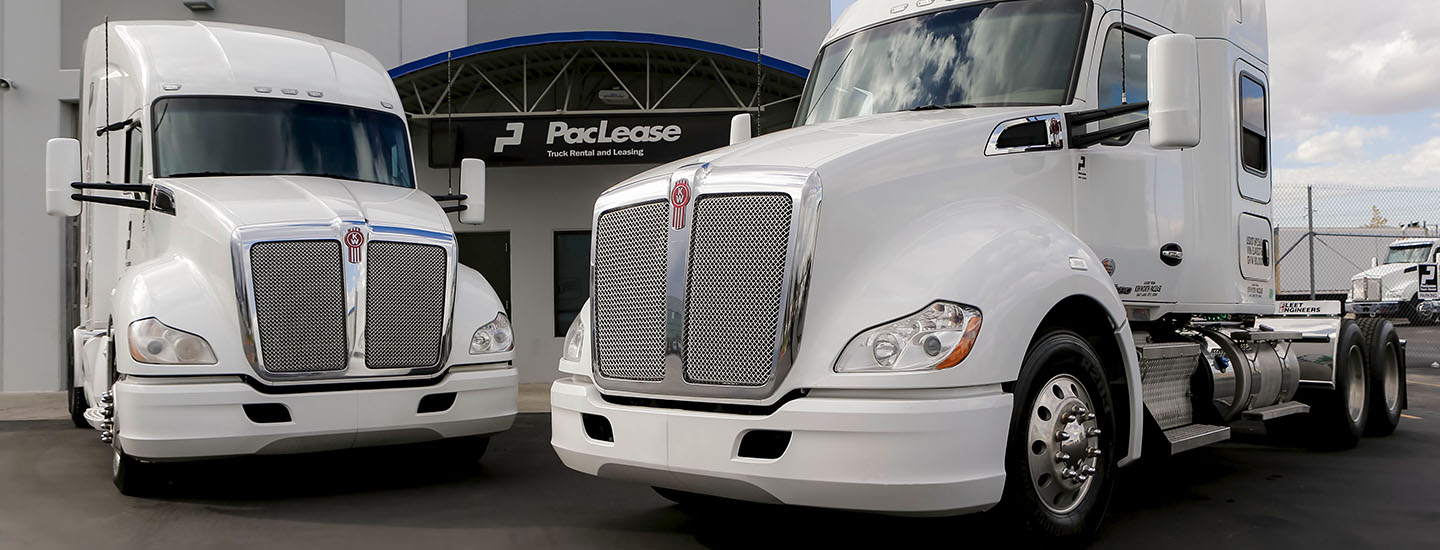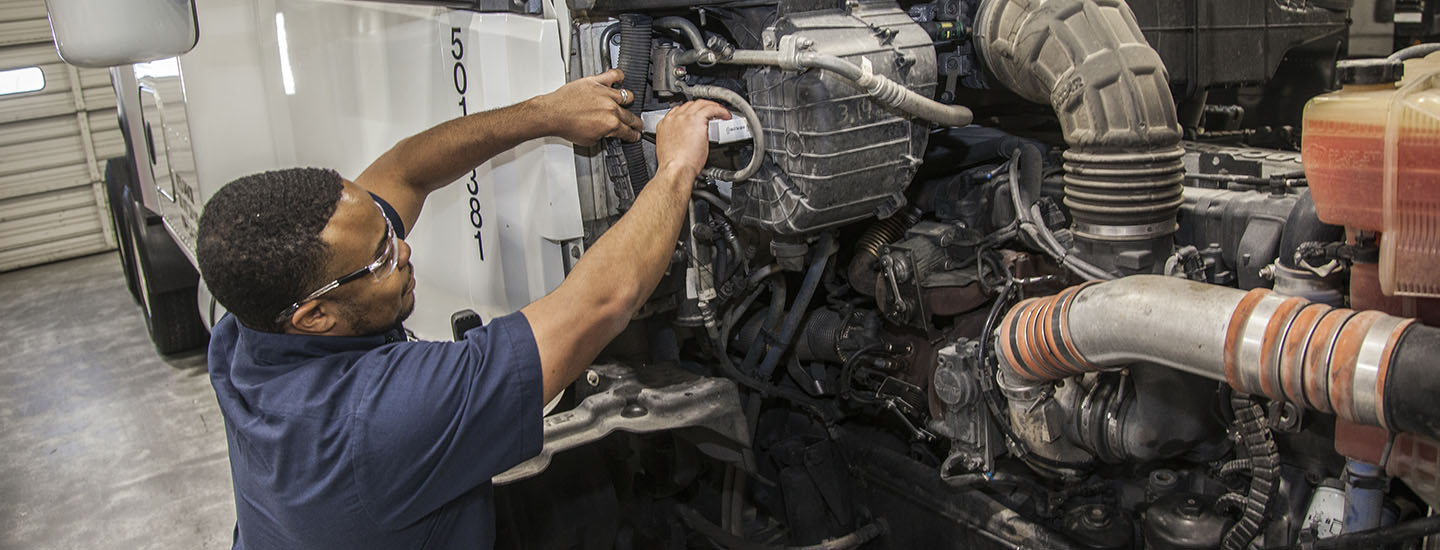August 10, 2018

Truck Orders on Fire. What about Rentals?
By Chachi Hernandez, PacLease Director of Rental
One look at the July 16 cover story in Transport Topics says it all. “Class 8 Orders Soar 133%”
June orders for heavy trucks hit 42,000 units, up from 18,104 a year earlier. That means a backlog for up to six months for those buying new trucks. Happily, for those wanting to get into new Peterbilt or Kenworth trucks through a full-service lease with PacLease, your wait isn’t near as long. PacLease has guaranteed build placeholders, which means slots are already saved, and trucks can be delivered in a shorter period of time.
For those who can’t wait for a new truck to be delivered, or for those with seasonal appetites for trucks, rentals are available. But, are there enough to go around? The good news is yes, PacLease has trucks – both for short- and long-term rentals. Year-over-year (June 2017 to June 2018) PacLease franchises have increased their inventory of rental trucks by 8 percent to help ensure our customers have trucks when they need them. Even with the added trucks, we’ve seen a 10 percent jump in rental truck utilization – so inventory is tighter than it was a year ago, but we can still help our customers with units. What’s more, unlike other lease/rental companies, PacLease is renting specialized vehicles, which includes roll-off trucks for use in agriculture, construction, recycling, and trash applications. These trucks are especially popular in Indiana, Ohio and California. Plus, PacLease will rent trucks to those in haz-mat operations, pending PacLease Insurance team approval.
If you’re looking to rent, what should you look for? Here are some tips:

Age of the Rental Trucks
Even if you plan to rent on the short-term, you should get a rental unit that will perform best in your operation – you don’t need to compromise. Look for late model trucks to help ensure the truck is reliable and features the latest technology to improve fuel economy, and driver comfort. Most national rental companies, like PacLease, buy new trucks for their rental fleets, but others take trucks coming off a full-service lease, and put those in the rental fleet. PacLease rental trucks average less than 3 years in age, so customers are getting a late model, well-maintained truck that will perform as advertised. Plus, Kenworth and Peterbilt trucks are top-of-the line – something to think about in an era where driver retention is critical.
Best Specs for Local Terrain
Look for rental trucks that were spec’d by your local lease/rental company for their own market, and for ‘you.’ Some rental companies offer the same rental trucks throughout the country, with the same specs. But, a truck driver in Florida has a different terrain to navigate than one in Colorado. As an example, if you live in areas with hills and mountains, make sure you have the horsepower and torque to make driving more efficient and productive. What’s more if you have a specialized operation and need to rent trucks, your local rental company might not have the perfect truck – but someone in their network, might. It’s not uncommon for a franchise to bring in a special rental truck that works better for their customer.

Reliability and Peace of Mind
Is your rental truck going to be reliable and what happens if there is a problem on the road? That’s an important question. A well-maintained truck is a must and that’s the most important component in renting a reliable truck. That being said, trucks are mechanical and they can break down. If that happens, how will your rental company respond? You need to count on your rental company to provide immediate assistance -- finding another truck and resolving any issues so you can complete your delivery.
Keep this in Mind: Rent Before you Buy
Most rent for an immediate or seasonal need….or they rent as a stop-gap measure as they wait for a new truck to be delivered. But, a growing trend is renting before you lease. We think it makes great sense and we encourage it for those who are considering leasing for the first time. Rent the truck you’re interested in leasing; see how well the lease/rental company takes care of that equipment and you; and how well your drivers like the truck. It takes the risk out of the commitment and helps a fleet make a smart business decision.
As you can see, there are a many of reasons why companies rent. The key to success with rentals is getting a truck that matches your operation and picking a rental company that forms a partnership with you. When it comes to running your business, quality shouldn’t be something you have to compromise on. Forming a true business partnership will allow the rental company to focus on taking care of your fleet and give you more time to focus on taking care of your customers.
